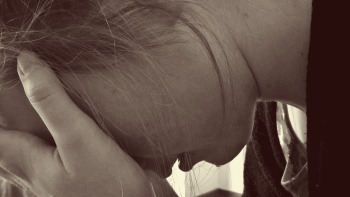Worth reading from off the web!
 There are three essential elements to an abusive relationship:
There are three essential elements to an abusive relationship:
1. Consistent occurrences of power and control over another
2. Chronic feelings and displays of disrespect
3. Unhealthy attachment mistaken for love
Abusers are highly deceptive and the victim, as well as others, have no idea that he is being abusive at all. He purposefully undermines his victim’s individuality and confidence by dominating conversations and suppressing her identity, making her into a mere object for his purposes. He minimizes anything about her, including her opinions, accomplishments, concerns, feelings, or desires. This causes her to do the same and she learns to minimize herself as well.
Abuse and respect are polar opposites
He has a chronic attitude of disrespect towards his partner. A respectful relationship is not abusive and an abusive relationship does not contain respect. An abuser views his partner as his property, which allows him to feel powerful and in charge.
It is essential for an abuser to feel this way because he has a fragile ego and delicate sense of self. Without feeling more powerful than his partner he feels weak and vulnerable. Feeling any sense of vulnerability taps into his sense of powerlessness which he is unwilling to experience for any reason. As long as he sees himself in the “one up” position his fragile ego is kept at bay.
Abuse is caused by the belief system of the abuser. The abuser has developed a deeply ingrained sense of superiority and entitlement which does not go away by learning how to manage anger or resolve conflicts. Abusers use anger to control. They engage in conflicts to abuse their partner; show their superiority; and keep intimacy away. Since intimacy requires vulnerability, a feeling abusers avoid at all costs, they have no interest in developing such closeness.
Abuse is not the same as conflict. A conflict involves a difference of opinion. Abuse involves the need for the abuser to stifle the feelings, thoughts, opinions, and values of the abused. An abuser refuses to accept any accountability or responsibility for any of the problems in the relationship. His hallmark attitude is one of superiority and blame. It is not the conflict that is the problem. The abuser caused the conflict in the first place. There can be no resolution.
There is no way to “approach their partner appropriately,” or “pick the right time to address something.”
Abusers can choose any reason to blame his victim for an abusive incident. Abusers abuse because they choose to. It is the abusive mindset that allows them to abuse for a number of reasons:
(1) They are unhappy and they don’t know what to do with their emotions.
(2) They dump their rage and shame on others.
(3) They may have a narcissistic or anti-social personality disorders.
(4) They feel in control, powerful, strong, and superior, which helps them keep all weak, needy, and vulnerable emotions hidden.
(5) Some people abuse because they were taught this as children and operate out of this inner working relationship dynamic.
Whether abuse is physical, sexual, verbal, emotional, financial, spiritual, or some rendition of all of these, there are some basic components of abuse; these are: blame, criticism, neglect, oppression, minimization, rigidity, ridicule, lies, invalidation, lack of accountability, no remorse, no apologies, repeated name calling, double standards, violence, and a consistent lack of empathy.
Realize that abuse, like addiction, is a chronic “disease” that progresses with time, meaning it only gets worse.
Can an abuser be cured?
Of course anything is possible.
Here are the signs that an abuser is changing:
- he is willing to be accountable to his spouse and others;
- he is willing to never have a sense of entitlement in any relationship, for any reason,
- he shows self-reflection and insight;
- he stops blaming others or minimizing, justifying, or rationalizing his own attitudes and behaviors;
- he listens to and validates others, including his spouse;
- while he is never going to be perfect, when he messes up, he apologizes, shows insight into what he did wrong, shows remorse, and changes.
Abusers in recovery are just like alcoholics in recovery
Alcoholics can never even have one drink ever again in order to maintain sobriety. Abusers can’t be like “normal” people who may be rude or disrespectful at times. Recovery for an abuser needs to be different from what comes natural for the partner. Coddling an abuser and showing him empathy only exacerbates his entitlement. Recovery for an abuser requires that he does not allow himself to ever be rude, disrespectful, entitled, or invalidating ever again. Instead, he is humble and compassionate at all times. No excuses.
About Sharie Stines, Psy.D
Sharie Stines, Psy.D. is a recovery expert specializing in personality disorders, complex trauma and helping people overcome damage caused to their lives by addictions, abuse, trauma and dysfunctional relationships. Sharie is a counselor at LIfeline Counseling & Education Inc., in Whittier, California (www.lifelinecounseling.org).
Edited for readability Source: Recognizing and Changing an Abusive Relationship | The Recovery Expert
From one social worker to another, THAN YOU FOR THIS. I lived through a relationship like this while battling addiction at the same time. And you are absolutely right, and abusive relationship only gets worse.
LikeLiked by 1 person
THANK YOU SO MUCH FOR THIS POST!!!!!
LikeLiked by 1 person
Reblogged this on By the Mighty Mumford and commented:
“FOR ANYONE’S INFORMATION”
LikeLiked by 1 person